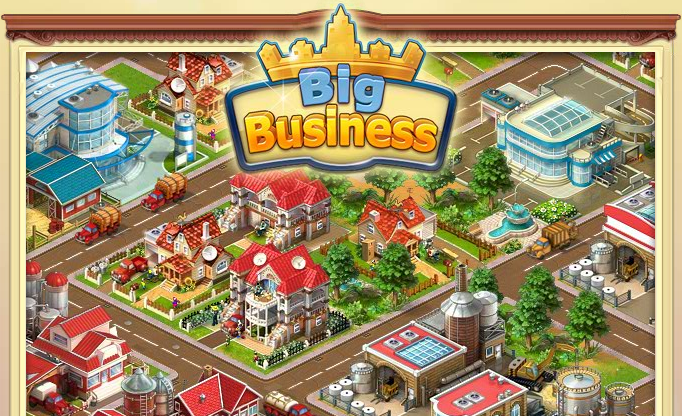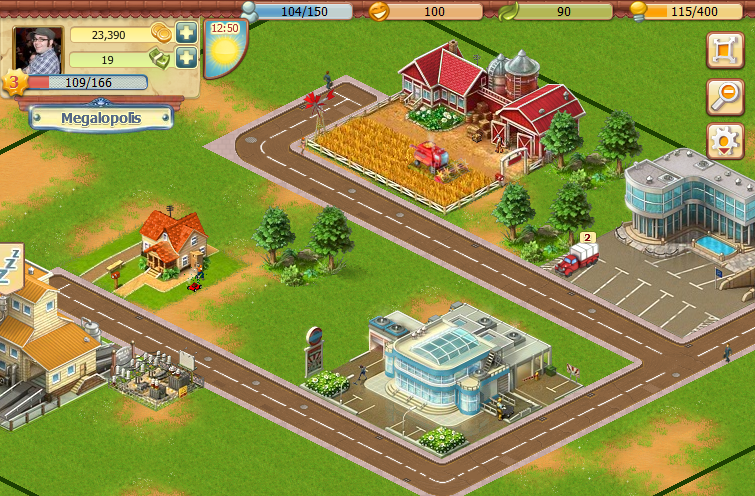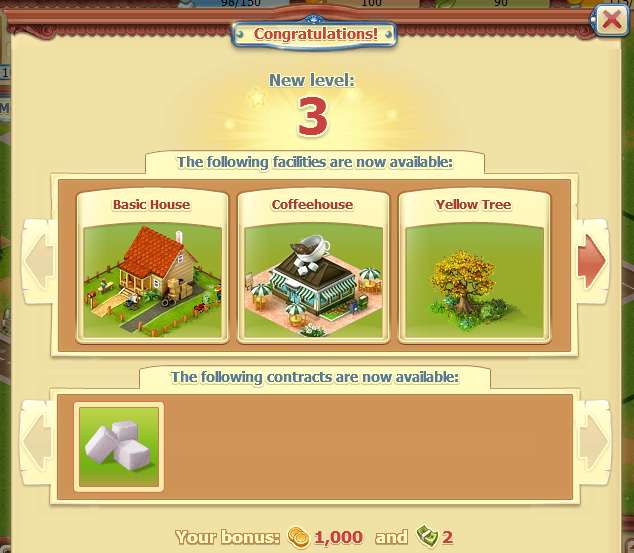Game Insight发布新款城市建设类游戏Big Business
随着CityVille,Social City等社交游戏在Facebook网站的盛行,这类城市建设游戏不约而同地体现了商业对城市生活的重要性,然而上述游戏都忽略了一个细节问题:部分玩家希望更深入地体验城市建设,愿意在虚拟城市的运输,生产,销售和资源管理上投入精力。也正因此,Game Insight公司发布了新款Facebook城市建设类游戏Big Business,令玩家更切实地领略城市建设的酸甜苦辣。
在Big Business游戏中,首先我们注意到游戏中的城市建设不是即时形成的,玩家各种活动都是动态的,城市建设伴随着噪杂的人群和持续不断的施工轰鸣声中进行。另外,由于游戏运行流畅,Game Insight更是将建筑的过程分阶段呈现。如此一来,游戏中的各种活动基本上都是动态的,这种模式可谓是有好也有坏。
虽然这样可以令玩家直观地感觉到城市建设的脉动,但是将各种建设活动动态化就意味着玩家的行动都是非即时的。因此,在Big Business中完成各项任务所花费的时间要比其他社交游戏长。然而,在big Business的新手指南任务中,系统要求玩家种植的一款能加速城市建设的能量植物却是即时的,这与该游戏其他建设过程恰恰背道而驰。另外,玩家可以通过使用游戏币或City Credits缩短城市建设的耗时,但就我个人而言我更希望将钱花在一些更酷的游戏道具上,而不是减速。
游戏邦注意到,Big Business的商业系统设计得十分精湛。城市各种建筑物之间的关联性很强,要求玩家平衡发展各种城市设施:人口数量要与住宅数量相适应,商品的产出要与市场的出售情况保持平衡,同时还要加紧建设运输和生产设施以引进开发更好的产品。
由于Big Business不再仅仅关注商品生产,因此玩家在游戏中要注重发展各种事物,其中十分重要的一项就是服务。玩家要不断加强譬如电力站等城市设施的服务能力以满足不断增长的城市人口。因此,城市发展越快,玩家就需提供更多更高品质的服务。
另外,玩家建设的工业区或住宅区都有两大测量指数:生态指数和幸福指数。玩家每建造一个建筑物,生态指数就会有所下降,只能通过植树造林来回复。此外,玩家还需在城市中建设一定数量的娱乐性建筑以提高居民的幸福指数等,这类游戏游戏的建造不会影响生态指数。因此,Big Business游戏的关键在于和谐发展而不是一味地追求金钱。如果您也热衷于微管理,不妨到Big Business建造属于自己的城市吧!(本文由游戏邦/gamerboom.com编译 转载请注明:游戏邦)
While city simulation games like CityVille and Social City do address how important businesses are to city life, they skimp out on the nitty gritty details. The micro manager in all of us–well, some of us–wants to worry about shipments, goods production, sales and even resource management. This is where Game Insight comes in with Big Business, a city-building Facebook game that gets down and dirty with what’s really makes a city work.
Continue reading to find out how Big Business fairs among the nuances of running a city.
The first thing you’ll notice about Big Business is that it runs without a hitch. Nearly every action is fully animated amongst bustling citizens and buildings constantly abuzz with activity. And because of how smooth the game runs, Game Insight made a point at every turn to show it off. This becomes obvious when nearly every action in the game is fully animated, which is a double-edged sword of sorts.
While it’s certainly a sight to literally see your town at work, the fact that everything is animated means that almost no action is instant. Because of this, expect to spend more time in Big Business doing routine tasks than in other social games. However, this relaxed gameplay style goes a bit too far by bleeding through everything else in the game. For instance, the game’s tutorial tasks you with building a power plant to fuel your city’s homes and businesses, which is done instantly. This is far from the reality of the rest of the game where most other buildings will take hours to construct. And while you can speed up the process through coins and City Credits–the game’s paid currency–I’d personally rather spend premium currency on cool items than faster, generic ones.
One thing Big Business does exceptionally well is its business ecosystem. If that sounds a bit confusing, what I mean is that every type of building works with the others and if one falls behind, the others lose as well. This makes for an interesting balance between maintaining your city’s population through Houses while producing and either selling goods to Supermarkets or transporting to other production facilities for use in more complex goods. Though, all of which cannot be done without Garages and the transport vehicles to support them.
Though you won’t get by through simply producing and supplying goods; you have plenty more things to worry about. These businesses cannot run for long without Services. These buildings, like the Power Station and Mechanic, provide upkeep for both your business and your citizens. The more your city grows, the more Services you’ll need to support it. And yet, it doesn’t stop there.
Your buildings, both industrial and residential, are governed by two statistics, Ecology and Happiness. For every building you throw up, your Ecology value will take a hit, which can only be restored by adding more Trees to your city. On top of that, your citizens will become unhappy without enough Entertainment buildings, though at least they don’t draw from Ecology. It’s maintaining this balance that’s far more important in Big Business than making the most cash possible.
By now you should have a pretty good idea of how bogged down players could get under the seemingly endless statistics and lengthy wait times for buildings to construct and actions to complete. Though if micro management is your thing, welcome to the Holy Grail of simulation games. (source: Games.com)










































 闽公网安备35020302001549号
闽公网安备35020302001549号